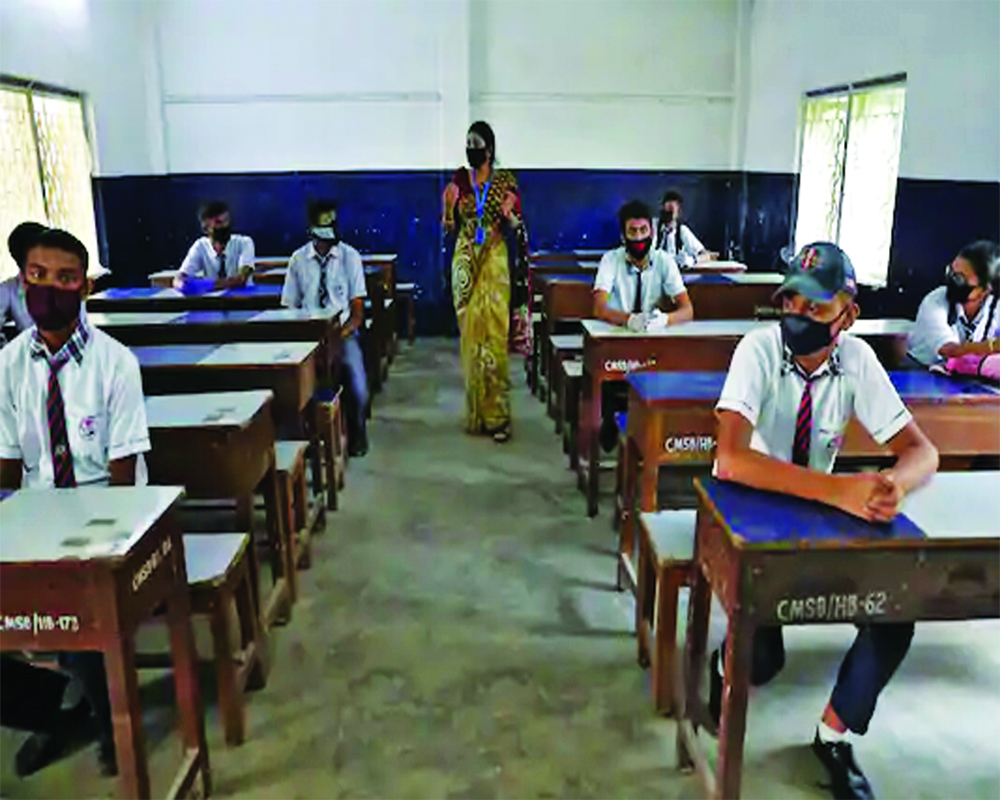The National Education Policy-2020 rightly accords importance to mentoring as it can offer wide-ranging support to learners
I read with considerable interest the Delhi Government’s decision to launch “mentoring” of 1,000 girl students by 250 select senior-level students to help them move towards careers in STEM — science, technology, engineering and maths. Obviously, the move is linked to the importance that mentoring finds in the National Education Policy (NEP-2020): “A National Mission shall be established, with a large pool of outstanding/retired faculty — including those with the ability to teach in the Indian languages — that would be willing to provide short-term mentoring/professional support to the university/college teachers.” The policy proposal should have far-reaching and much wider implications than those indicated in the initiative mentioned above. Mentoring, articulated comprehensively, can offer tremendous support to institutional functioning, quality enhancement, stress reduction in the learning environment and critical thinking.
At present, the inadequacy of professionally equipped manpower is a major bottleneck practically at every stage of education. It is the initial stage of teaching and learning that alone prepares a solid foundation for quality research, innovations and entrepreneurship. If children get necessary personal-level guidance and help at this stage, it would be a huge help in future. Learning is no more confined to classrooms, textbooks and the hallowed premises of schools and institutes of higher learning. In times of swiftly increasing availability of digital learning support systems, educational institutions must broaden their horizons and be prepared to take help from outside the formal systems. The times ahead would demand multidisciplinary and holistic education that would prepare the learners for making effective contribution in creating a world of peace. JRD Tata once told youngsters: “Aim for perfection; you will achieve excellence.”
This is what education and learning are all about. The pursuit of excellence ought to be the goal of every informed and thinking individual. The process of growing up deserves to be dynamically oriented accordingly. Apart from the acquisition of life and productive skills, the systematic process of learning must enable every individual to lead a peaceful, harmonious and sublime life. This is best expressed in the essence of “Satyam, Shivam, Sundaram” (Truth, Beauty and Goodness)! And what good is life if society and its institutions permit growing up without internalisation of these ingredients. It must be accepted that our education systems work under the conditions of deficiency of every kind. Sadly enough, it includes financial resources and availability of competent teachers in the right proportion. In a world moving towards knowledge economy and knowledge society, no forward-looking nation can afford dilution of quality in education, which India is suffering from at present. One could get a realistic assessment by visiting just a couple of sarkari schools and colleges, or a State-maintained university.
Mentoring can be of help to everyone at every stage of life. It contributes most prominently in the initial stages, and it has a lasting impact. It must come from someone wiser, experienced, empathetic, understanding and ready to be a partner in the process of discovery. Everyone learns from someone else: Mostly it would be from parents, friends, an acquaintance or an icon. Formal education/schooling can cater only to a part of growing up, that too if the system is working with full efficacy. Think of Eklavya! He had a virtual mentor, who was his icon. In the current times, every school could identify persons from the community with experience, skills and readiness to support the young ones in their learning needs. This would also require decentralisation of authority. The head teacher must be authorised to seek such support based on her/his judgment and the availability of right persons.
In the 1960s-1970s, teaching in universities never suffered due to academic vacancies as the department heads were authorised to fill up even short vacancies from amongst the research scholars available within the department, or from outside. The senior faculty would help them in every possible manner; an example of perfect mentoring could be seen in practically every university department. On appropriate occasions, help was also sought from the retired faculty. It was always readily forthcoming as they were not busy with coaching or teaching in private institutes, which is now the order of the day. An example: The head of a university department once asked a brilliant young lecturer how he liked the teaching experience. The young man replied: “I am worried. Shall I be repeating the stuff for the next three-four decades?” The senior answered: “Oh! You are teaching only physics? I help my students grow up. In that, there is no repetition!”
Life is getting more complex and competitive by the day. The generations ahead shall endure a much faster pace of change; the educational institutions therefore must seek support from suitably equipped persons with a vision for future generations. The mentoring force needs to be confined to retired and willing teachers only as the process requires comprehension of the issues of the young on a much larger span. One expects that the importance accorded to mentoring in the NEP-2020 shall bring about a real positive change in the learning environment at every stage.
(The writer works in education and social cohesion. The views expressed are personal.)


























